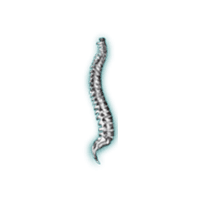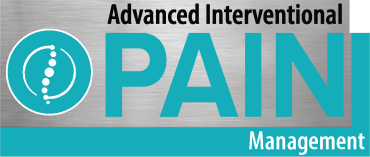
Advanced Interventional Pain Management
Interventional Pain Management Specialists located in Hot Springs, AR & Little Rock, AR
Your knees work harder than almost any other joints, and despite their resilience, they’re also more prone to damage. If you have chronic knee pain, interventional pain specialists Jacob Abraham, MD, and Ryan Stuckey, MD, of Advanced Interventional Pain Management can help. The practice has offices in Hot Springs, Little Rock, Texarkana, El Dorado, Arkadelphia, and Mena, Arkansas, where the dedicated team provides expert treatments like radiofrequency genicular neurotomy to treat persistent knee pain. Call the office nearest you today to schedule a consultation or book an appointment using the online form.
Knee Pain Q & A
What causes knee pain?
Acute knee pain is frequently due to an injury affecting the bones, cartilage, or connective tissues in the joint. Common knee injuries include:
- Anterior cruciate ligament (ACL) tear
- Medial collateral ligament (MCL) tear
- Meniscal tear
- Patellar (kneecap) instability
- Patellofemoral syndrome
- Patellar tendinitis (runner’s knee)
- Articular cartilage injuries
- Iliotibial (IT) band injury
- Fractures
- Dislocations
With the right treatment and rehabilitation, most patients recover from these injuries and their knee pain. Untreated injuries or those that heal poorly can develop into chronic pain problems.
The other chief cause of chronic knee pain is arthritis. There are many forms of arthritis, but osteoarthritis is the most common. It develops when your bones lose their protective covering due to wear-and-tear. Subsequent friction and inflammation lead to chronic pain and stiffness.
It’s important for your provider at Advanced Interventional Pain Management to diagnose the cause of your knee pain accurately to ensure you receive the most effective treatments.
How is knee pain diagnosed?
To diagnose your knee pain, your provider examines your knee during a consultation. They look at your range of motion, feel for any abnormalities, and pinpoint the source of your pain.
Your provider at Advanced Interventional Pain Management might also need to look at diagnostic images of your knee, using X-rays, a CT scan, or an MRI, to confirm the preliminary diagnosis and assess the severity and extent of any tissue damage.
A diagnostic genicular nerve block might also be useful to determine the source of your pain. It involves having an injection of anesthetic into the genicular nerves in your knee to see if you get relief from your pain.
Once they’ve established the cause of your knee pain, your provider at Advanced Interventional Pain Management creates a suitable treatment plan.
How is knee pain treated?
Treatments for knee pain include:
- Rest
- Activity modification
- Physical therapy
- Knee braces
- Steroid injections into the joint
- Hyaluronic acid injections
Your provider uses cutting-edge image guidance technology to perform joint injections. Following the path of the needle on a monitor screen ensures optimal placement of the medication and minimal tissue damage.
Most patients who have chronic knee pain find a combination of these treatments relieves their discomfort satisfactorily. If not, you might benefit from an advanced treatment option such as radiofrequency genicular neurotomy.
What is radiofrequency genicular neurotomy?
Radiofrequency genicular neurotomy (also known as radiofrequency ablation or rhizotomy) is an outpatient procedure during which your provider at Advanced Interventional Pain Management uses radiofrequency technology to heat the genicular nerves in your knee.
These nerves are the ones that transmit pain signals to your brain. After treatment, the nerves can no longer send pain messages. Radiofrequency neurotomy could provide long-term relief from chronic knee pain.
For expert diagnosis and treatment of knee pain, call Advanced Interventional Pain Management today or book an appointment online.
